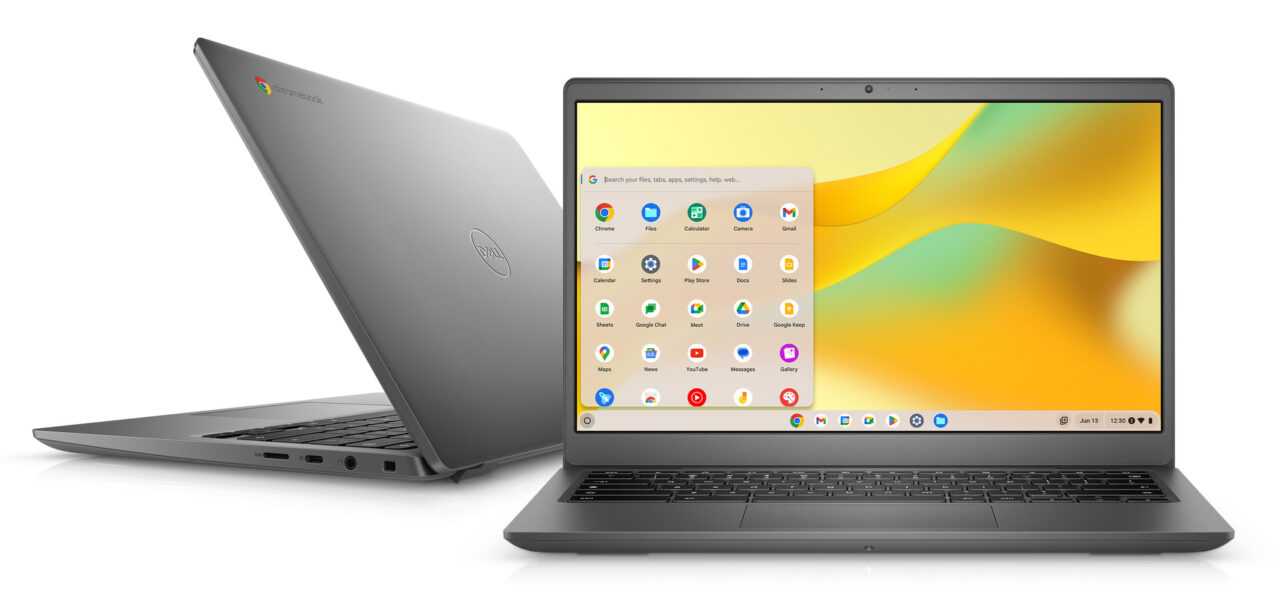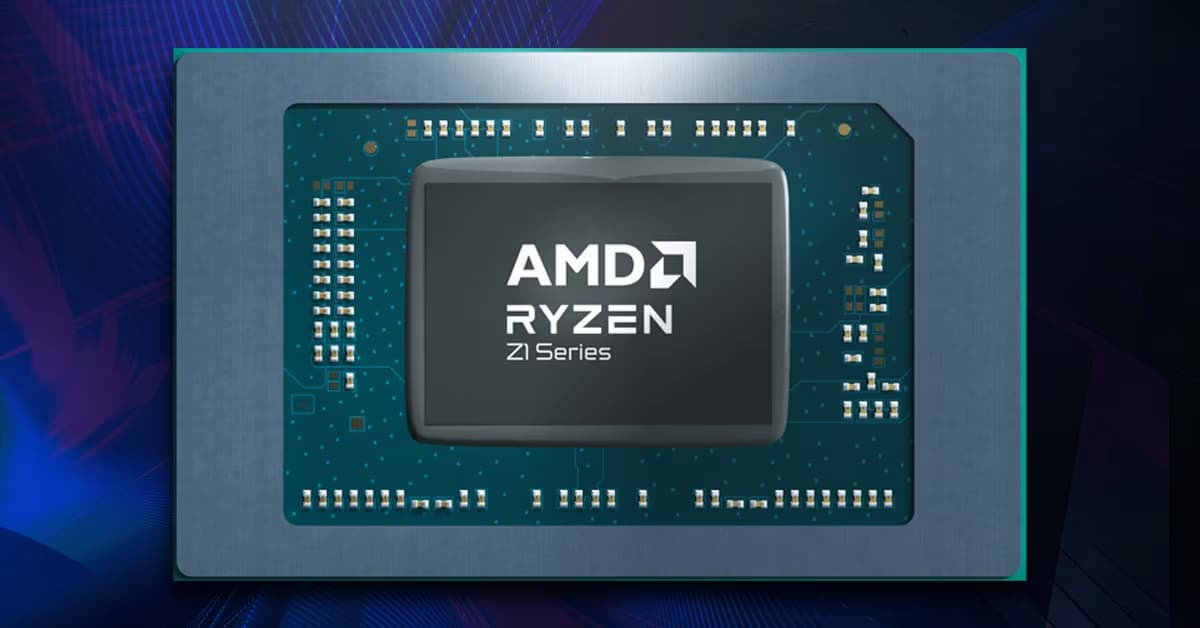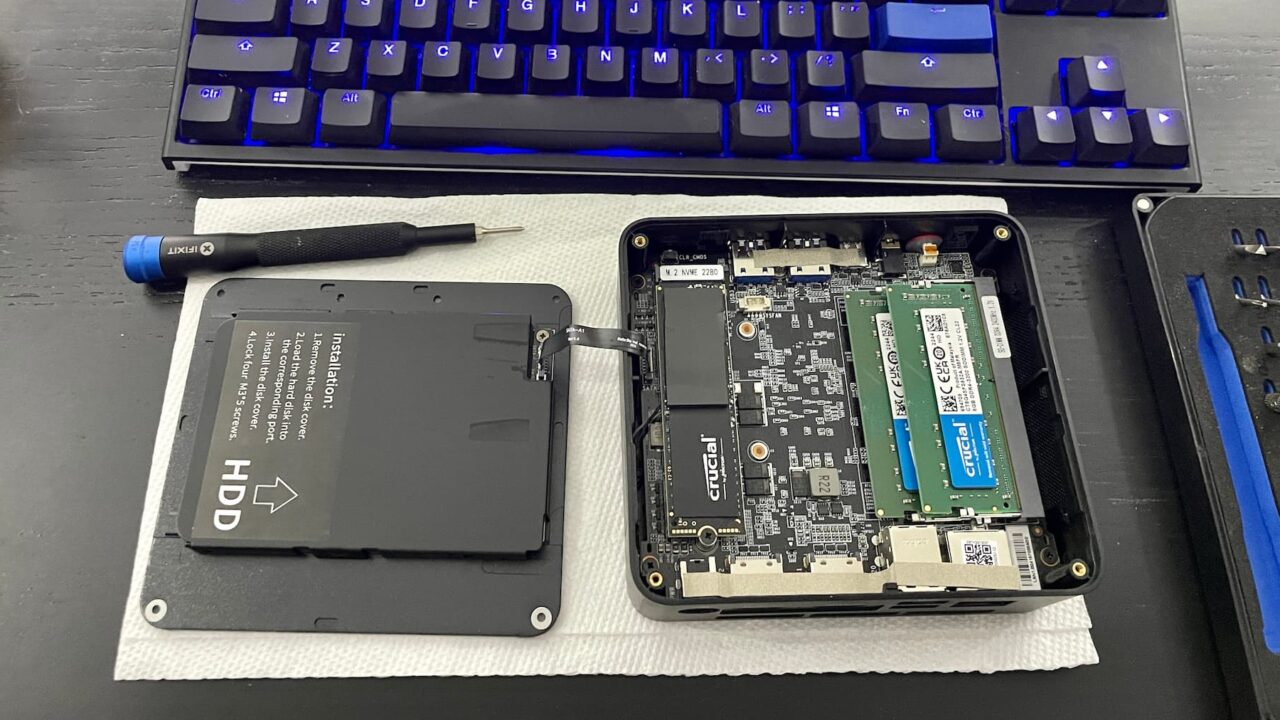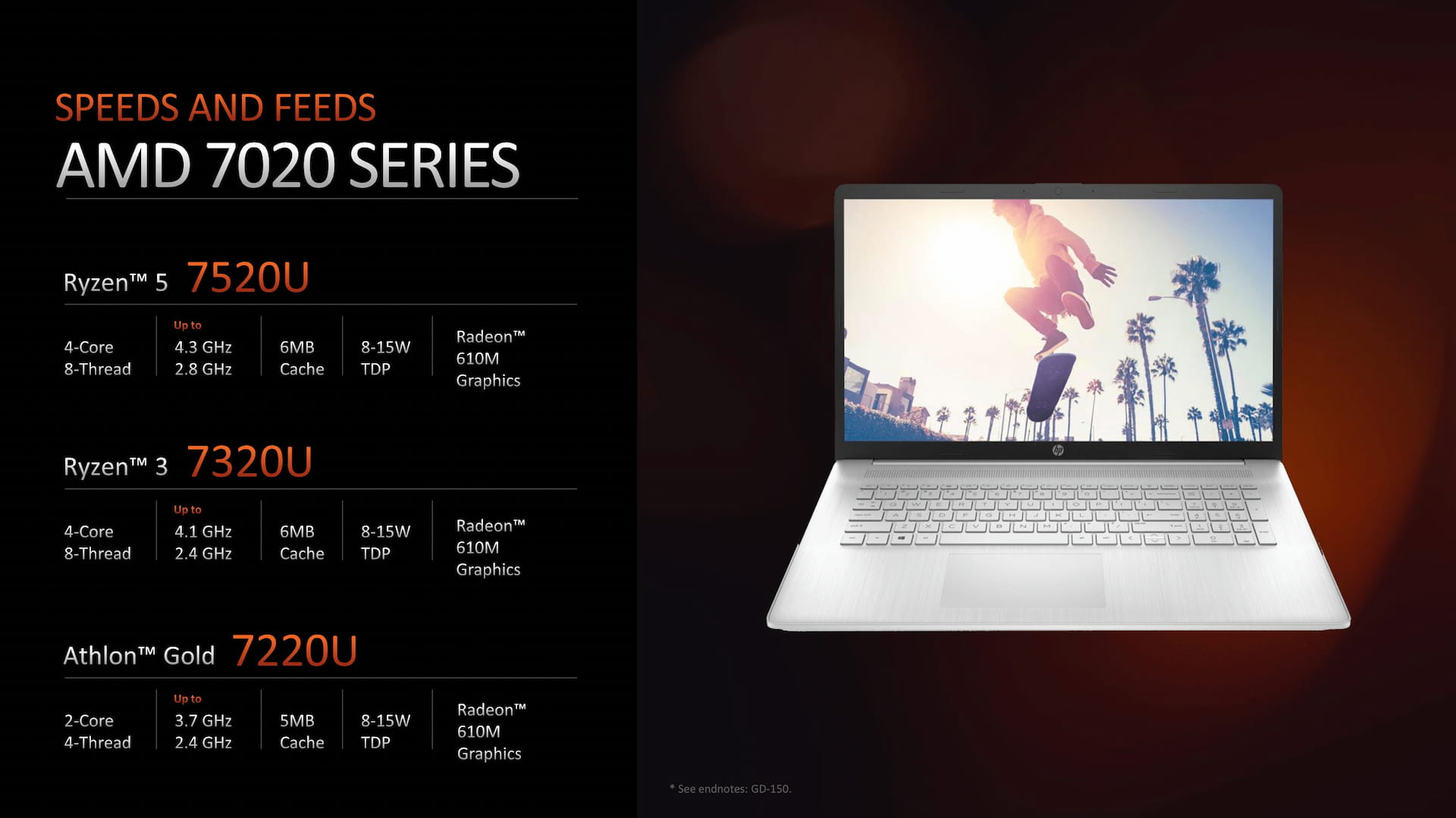Earlier this month I was a excited when I found the new Dell Latitude 3445 Chromebook. Perhaps a bit too excited though. Yes, there are new AMD Chromebook chips inside the Dell. Now that the official details are available from AMD, however, I see that these chipsets are based on the company’s architecture from 2019.
Why is that every time we get AMD inside a Chromebook, it’s never even close to the latest and greatest processors?

Details of the new AMD Chromebook chips
I don’t have an answer to that question but at least I can dig into the relevant details of the new AMD Chromebook chips. As I reported earlier, the Dell Latitude 3445 Chromebook has four chip choices:
Two of the four chip choices are dual-core Athlon Gold or Silver options, meant to compete against Intel Celeron and Pentium processors.
The other two are the ones I thought would be impressive:
- AMD Ryzen 5 7520C, 6 MB total cache, 4 cores, 8 Threads, 2.80 GHz to 4.30 GHz
- AMD Ryzen 3 7320C, 6 MB total cache, 4 cores, 8 Threads, 2.40 GHz to 4.10 GHz
But the devil’s in the details and if you click the link above for either chip, you’ll start to see those disappointing details.
For starters, both chips are built on AMD’s “Zen 2” architecture, which is now around four years old. AMD has advanced to Zen 3, Zen 3+ and, most recently, its highly efficient and powerful Zen 4 models. So these new AMD Chromebook chips aren’t even in the same ballpark as any AMD silicon since 2020.
From a compute standpoint, the Steam Deck gaming handheld that debuted last year is roughly equivalent to the new AMD Chromebook chips. It has a little more horsepower on the GPU side of things, because… it’s meant for gaming. Heck, the new AMD Ryzen Z1 for next-gen gaming handhelds is a Zen 4 chip. So even portable game machines have more oomph than any new AMD Chromebook coming down the pike.

Better GPU performance but that’s not enough
Like prior AMD Chromebook chips, these new ones do have a slightly beefed up integrated GPU. In the case of the 7320C and 7520C, we’re talking about AMD Radeon 610M graphics. As I noted when talking about the Dell Latitude 3445 Chromebook, this should offer a better graphical experience than what Intel offers. So at least that’s a positive. But , we’re still not going to see fantastic Steam gaming on Chromebooks with these.
Oh, and I’m a bit dubious about AMD’s claims of “up to 17 hours of expected battery life on Ryzen 3 7320C processors”, too. While battery life is certainly dependent on the power usage of the processor, it’s also affected by the screen size, screen brightness and resolution, and size of the battery itself. If you could swap a 15W Intel chip in a Chromebook for a 15W AMD processor, you’re not likely to see a huge difference in run time. Regardless, I’ll do my own battery life claims if I get a Chromebook powered by AMD. And if I’m wrong in my doubts, I’ll happily say so.
The circle of (disappointing) life for AMD Chromebook chips
And this brings me back to the original question: Why, when we get AMD Chromebook chips, are they always so far behind newer, better chips that AMD has to offer?
Again, I don’t know. But this is becoming a recurring disappointment. Every few years, our spirits are lifted with the promise of new AMD Chromebook chips. And inevitably, the excitement fades as we find out the details. AMD pulls old technology off the shelf, tweaks it slightly and rebrands it as a new processor option for Chromebooks.

For perspective: that little $299 desktop mini-PC I bought in February uses an AMD Ryzen Pro 5650U chipset that debuted in 2021. It’s built on the Zen 3 platform and draws the same, low 15W of power as the new AMD Chromebook chips. It also has six cores and 12 threads with similar clock speeds. Even that old chipset would be better in a new AMD Chromebook and that’s not even considering the many mobile chips AMD has put out since 2021.
Frankly, this cycle of hope and disappointment is getting as old as the “new” chips. Wake me up when AMD’s latest and greatest can power a Chromebook so consumers have a real choice when it comes to Intel inside.
The post Those new AMD Chromebook chips are actually a bit old appeared first on About Chromebooks.

